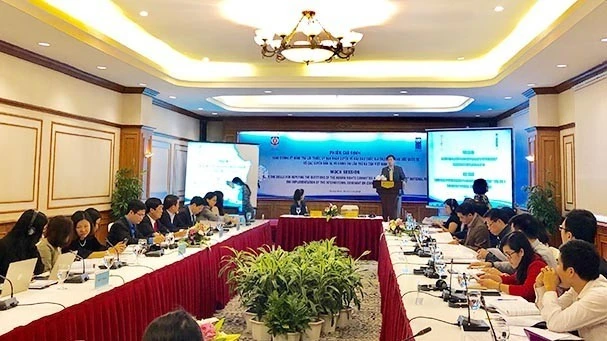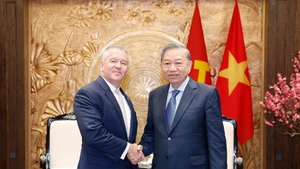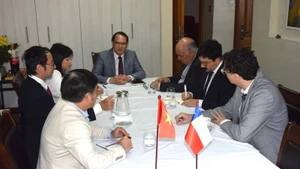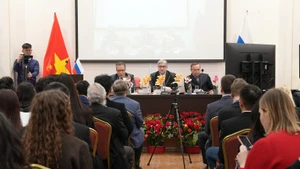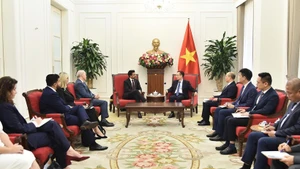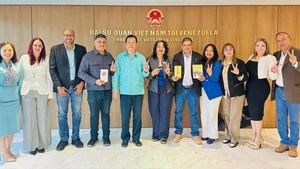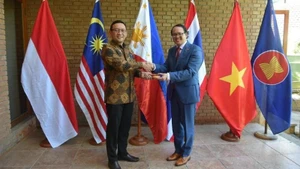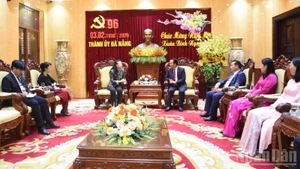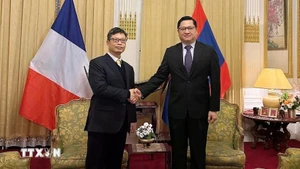The draft Law amending and supplementing certain provisions of the Law on International Treaties, expected to be reviewed and passed at the 10th session of the National Assembly, primarily addresses various obstacles and bottlenecks in the process of signing international treaties, particularly those involving ODA and concessional loans. It also aims to simplify the procedures for signing, amending, supplementing, extending, and implementing international treaties.
Legalisation of simplified procedures
According to National Assembly deputy Thach Phuoc Binh, Deputy Head of the Vinh Long provincial delegation, one noteworthy innovation in the current draft amendment is the legalisation (formal recognition) of simplified procedures. For the first time, the law will allow a concurrent mechanism for negotiation, signing, approval, and ratification for treaties that meet specific conditions.
However, deputy Thach Phuoc Binh emphasised that to ensure procedural integrity, specific criteria should be added when applying this simplified process. For instance, it should apply only to treaties that do not affect politics, defence, or security, and to financial treaties that do not create major obligations for the state budget. He also suggested clearly defining post-implementation review responsibilities and requiring reports to the National Assembly or the President to prevent misuse of the simplified mechanism.
Regarding the handling, reservation, and amendment of treaties, the new draft law introduces a mechanism requiring the Ministry of Foreign Affairs to promptly notify relevant agencies when the foreign party makes a reservation.
Deputy Thach Phuoc Binh proposed adding a legal principle to clearly determine when Viet Nam should accept or object to a reservation to avoid arbitrary application. He also recommended that treaties related to national sovereignty or major financial obligations must be submitted to the National Assembly for consultation to ensure that decisions are made prudently and comprehensively.
Unified authority for oversight responsibility
On the reporting mechanism to the National Assembly and the strengthening of parliamentary oversight over international treaties, Deputy Minister of Foreign Affairs Le Anh Tuan noted that the 2016 Law already provides for the Government’s annual reporting to the National Assembly on the signing and implementation of treaties. This is detailed in Article 81 of the 2016 Law, which also confirms the National Assembly’s supervisory authority.
According to Deputy Minister Le Anh Tuan, in recent years, the National Assembly and its Standing Committee (formerly the Committee for External Relations) have carried out numerous thematic oversight activities related to free trade agreements (FTAs), climate change, and border and territorial issues. Each year, the National Assembly conducts high-level supervision by reviewing these Government reports.
Assessing the National Assembly’s supervision of treaty implementation, Nguyen Khanh Linh from the Department of International Law, Ministry of Justice, pointed out that there remain several shortcomings, such as the lack of clear, detailed procedures for monitoring treaty implementation.
The authority responsible for overseeing implementation is not yet unified, and coordination mechanisms among relevant agencies remain vague. Methods of supervision are also insufficiently specified.
Consequently, assessing the effectiveness and performance of entities directly involved in supervising treaty implementation remains difficult to quantify. Supervision activities have not been conducted regularly and often remain formalistic.
To improve the legal framework, Ms Linh suggested further research and completion of the legal basis for monitoring treaty implementation. This includes clearly defining which individuals, agencies, and organisations have supervisory authority; specifying the roles and responsibilities of the National Assembly’s relevant committees; and developing concrete supervisory methods that can promptly detect issues and shortcomings during treaty implementation.
It is clear that to enhance the monitoring of international treaty implementation to which Viet Nam is a party, the National Assembly and relevant bodies must determine the legal value of post-supervision resolutions; strengthen their role and responsibility in reviewing draft laws, resolutions, and decrees issued to implement international commitments; and develop monitoring plans aligned with the roadmap for treaty obligations.
Furthermore, it is essential to promote the role of provincial National Assembly delegations in monitoring the implementation of international commitments at the local level.
Promoting digital transformation
One of the notable improvements in this round of amendments is the regulation on the publication, storage, and posting of international treaties on the electronic gazette, except for those classified as state secrets.
Deputy Thach Phuoc Binh proposed the codification of the establishment of a national database on international treaties to ensure transparency, consistency, accessibility, and better service for research, management, and public access to information by citizens and enterprises.
Additionally, transparency should be strengthened throughout the entire process, especially in the publication and storage of international treaties. The National Assembly’s supervisory role should be reinforced, particularly regarding treaties that directly affect national sovereignty, defence, security, and finance. Digital transformation should be promoted in the processes of consultation, review, and appraisal to shorten processing time, reduce costs, and align with modern governance trends.
Deputy Minister Le Anh Tuan stated that Clause 3 of Article 8 in the draft amendment regulates the publication and storage of treaty documents. In addition to compliance with the Law on International Treaties, it must also follow the current Law on Archives.
The Ministry of Foreign Affairs has already developed a national database on international treaties and will soon review and upgrade it to enhance accessibility, transparency, and openness.
Regarding digital transformation, all agencies connected to the shared data network can now submit electronic files for inter-agency consultation. The draft law also adds a provision for submitting both an electronic and a single paper version, replacing the previous requirement of five paper copies.
Deputy Minister Le Anh Tuan further explained that maintaining paper copies remains necessary, as some international treaties contain confidential information and require secure handling. This ensures the accuracy and confidentiality of critical international agreements, even as diplomatic activities increasingly move towards digitalisation.
